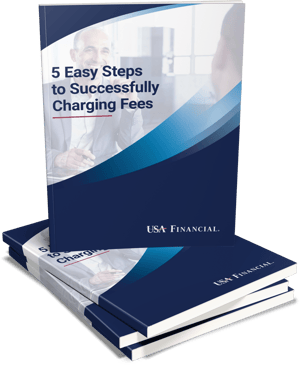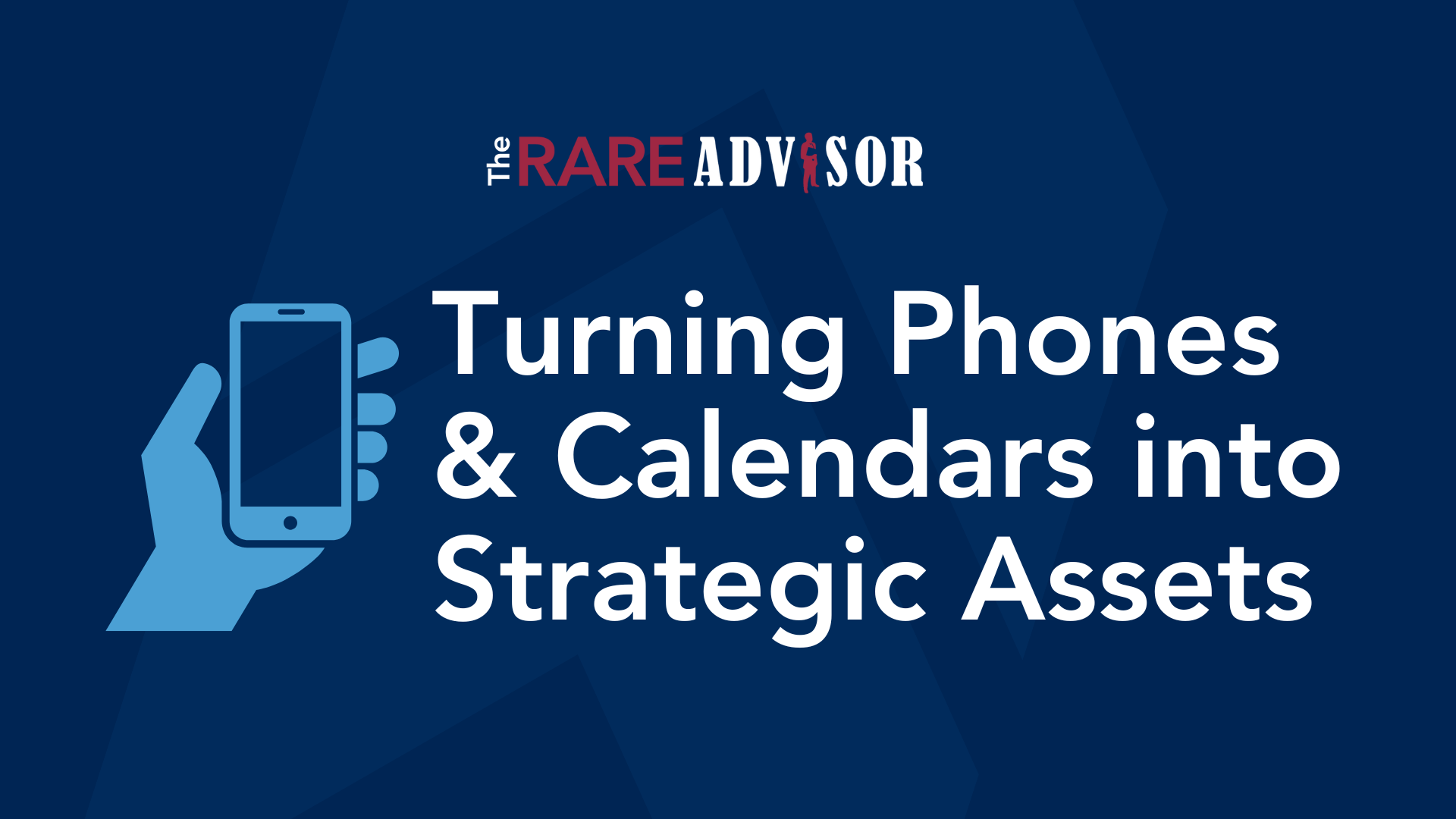5 Easy Steps to Successfully Charging Fees

Charging fees for your time in the financial advisory space is nothing new. However, it has garnered more attention from inside and outside industry circles as the fiduciary discussion continues to take center stage. The guidance shared in this guide assumes you are properly licensed to engage in this activity.

We believe it is important to note the distinction between charging fees for your time vs. fees for assets under management. While they fall under the same regulatory scope, the two must be viewed through separate lenses considering what they represent. Fees for your time, whether hourly or by project, are typically associated with a specific moment in time and related to a particular action or series of actions during that moment. Conversely, fees attached to assets under management typically imply a continuous activity along with ongoing monitoring. Notice we said “typically” in both instances. Advisors can certainly structure a “fee for time” arrangement in such a fashion where it stretches beyond a moment in time. For the purposes of this report, we will separate the two as we believe one has more to do with “advice in the moment(s)” vs. “management over time.”
The following steps are designed to share best practices for charging fees for your time. If you are currently not charging fees for your time, the most important thing to understand is that making this work within your practice has very little to do with the makeup or structure of your practice. If you genuinely create value for your clients, they will not balk at the notion of you charging a fee for your time. However, the first person who needs to be comfortable with this idea is you. You need to be confident in the value that you create for your clients, and you need to deliver on that value for the fee model to work.
Step #1:
Communicate with Transparency
As you take a prospective client through your process, you cannot leave them guessing about what is next. Most consumers do not have a clear understanding of how our industry works; as a result, they have a genuine need for information about what to expect. That includes how they may end up paying for your services. An informed consumer is far more empowered to make an educated and confident decision.
With that said, it is not necessary to tell them the exact fee that will be charged the moment you meet with them. In fact, you may not even know what the fee will be until you uncover more about their situation. If you have ever been on the consumer end of a transaction that had you wondering “what is this going to cost me,” you know that it can be an uneasy feeling. Be prepared to address this question should it arise. The most ideal time to share this conversation is after you have established some rapport and built value by demonstrating that you have a process that you follow. This will typically happen as you approach the end of your first meeting. A conversation like the following would be a good framework to follow...
Want to keep reading?
Related Posts

Access by Design: Turning Phones and Calendars into Strategic Assets
In this episode of The RARE Advisor, host Aaron Grady and practice management consultant Allan Oehrlein continue their discussion on time allocation by exploring what comes next: operationalizing structure across the entire advisory team. They break down why the phone is the “front door” to the firm and the calendar is the “engine room,” and how elite practices use standardized phone scripts, the strategic power of the word “unavailable,” intentional scheduling rules, and team empowerment to build consistency, capacity, and trust. Aaron and Allan outline how designed access—not unlimited access—creates scalability and a stronger client experience, while reducing reactivity, burnout, and advisor bottlenecks. They also offer practical challenges advisors can implement immediately to redesign their phone and scheduling processes in ways that elevate both team culture and enterprise value.

The Psychology Behind Your CTA: Why Prospects Don’t Click “Book a Call”
In this episode of Financial Advisor Marketing Playbook, Mark Mersman breaks down the real psychological barriers that stop prospects from clicking “book a call” on an advisor’s website—and how small language and design changes can dramatically improve conversions. You’ll learn practical, compliant fixes including softer CTA language, expectation statements, empathy‑based messaging, simplified design, and reassurance techniques that lower emotional friction. If you want a website that encourages prospects to take the first step confidently, this episode delivers actionable guidance advisors can implement immediately.

How Advisors Can Get 10 Hours Back Every Week
In this episode of The RARE Advisor, host Aaron Grady and USA Financial Pareto coach and Practice Management Consultant Allan Oehrlein dive into time allocation as a core lever for advisory success. They unpack the biggest time drains—email, unsolicited calls, and open-door interruptions—and lay out a practical framework for calendar rebalancing that starts with personal time, management time, client appointments, dedicated communications windows, “work on the business” time, and high-impact growth activities. With real-world stories showing how advisors shift from reactive days to structured weeks (and even reclaim Fridays), Aaron and Allan share easy-to-implement tips: color coding calendars, scheduling buffers, daily huddles, and call/appointment protocols. If you’re ready to audit your calendar, define your ideal week, and create structure that truly liberates your practice, this conversation is your next step.

Access by Design: Turning Phones and Calendars into Strategic Assets
In this episode of The RARE Advisor, host Aaron Grady and practice management consultant Allan Oehrlein continue their discussion on time allocation by exploring what comes next: operationalizing structure across the entire advisory team. They break down why the phone is the “front door” to the firm and the calendar is the “engine room,” and how elite practices use standardized phone scripts, the strategic power of the word “unavailable,” intentional scheduling rules, and team empowerment to build consistency, capacity, and trust. Aaron and Allan outline how designed access—not unlimited access—creates scalability and a stronger client experience, while reducing reactivity, burnout, and advisor bottlenecks. They also offer practical challenges advisors can implement immediately to redesign their phone and scheduling processes in ways that elevate both team culture and enterprise value.

The Psychology Behind Your CTA: Why Prospects Don’t Click “Book a Call”
In this episode of Financial Advisor Marketing Playbook, Mark Mersman breaks down the real psychological barriers that stop prospects from clicking “book a call” on an advisor’s website—and how small language and design changes can dramatically improve conversions. You’ll learn practical, compliant fixes including softer CTA language, expectation statements, empathy‑based messaging, simplified design, and reassurance techniques that lower emotional friction. If you want a website that encourages prospects to take the first step confidently, this episode delivers actionable guidance advisors can implement immediately.

How Advisors Can Get 10 Hours Back Every Week
In this episode of The RARE Advisor, host Aaron Grady and USA Financial Pareto coach and Practice Management Consultant Allan Oehrlein dive into time allocation as a core lever for advisory success. They unpack the biggest time drains—email, unsolicited calls, and open-door interruptions—and lay out a practical framework for calendar rebalancing that starts with personal time, management time, client appointments, dedicated communications windows, “work on the business” time, and high-impact growth activities. With real-world stories showing how advisors shift from reactive days to structured weeks (and even reclaim Fridays), Aaron and Allan share easy-to-implement tips: color coding calendars, scheduling buffers, daily huddles, and call/appointment protocols. If you’re ready to audit your calendar, define your ideal week, and create structure that truly liberates your practice, this conversation is your next step.

